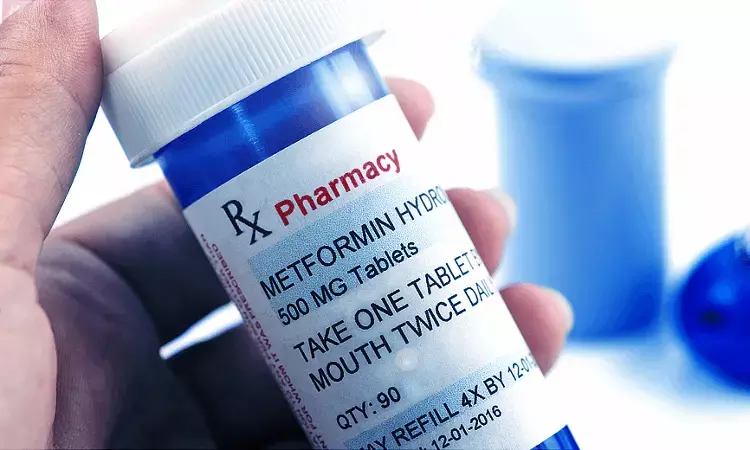- Home
- Medical news & Guidelines
- Anesthesiology
- Cardiology and CTVS
- Critical Care
- Dentistry
- Dermatology
- Diabetes and Endocrinology
- ENT
- Gastroenterology
- Medicine
- Nephrology
- Neurology
- Obstretics-Gynaecology
- Oncology
- Ophthalmology
- Orthopaedics
- Pediatrics-Neonatology
- Psychiatry
- Pulmonology
- Radiology
- Surgery
- Urology
- Laboratory Medicine
- Diet
- Nursing
- Paramedical
- Physiotherapy
- Health news
- Fact Check
- Bone Health Fact Check
- Brain Health Fact Check
- Cancer Related Fact Check
- Child Care Fact Check
- Dental and oral health fact check
- Diabetes and metabolic health fact check
- Diet and Nutrition Fact Check
- Eye and ENT Care Fact Check
- Fitness fact check
- Gut health fact check
- Heart health fact check
- Kidney health fact check
- Medical education fact check
- Men's health fact check
- Respiratory fact check
- Skin and hair care fact check
- Vaccine and Immunization fact check
- Women's health fact check
- AYUSH
- State News
- Andaman and Nicobar Islands
- Andhra Pradesh
- Arunachal Pradesh
- Assam
- Bihar
- Chandigarh
- Chattisgarh
- Dadra and Nagar Haveli
- Daman and Diu
- Delhi
- Goa
- Gujarat
- Haryana
- Himachal Pradesh
- Jammu & Kashmir
- Jharkhand
- Karnataka
- Kerala
- Ladakh
- Lakshadweep
- Madhya Pradesh
- Maharashtra
- Manipur
- Meghalaya
- Mizoram
- Nagaland
- Odisha
- Puducherry
- Punjab
- Rajasthan
- Sikkim
- Tamil Nadu
- Telangana
- Tripura
- Uttar Pradesh
- Uttrakhand
- West Bengal
- Medical Education
- Industry
Metformin-associated lactic acidosis rare but fatal if not treated early

Metformin is the most commonly prescribed oral hypoglycemic agent for the management of diabetes. It is generally considered to be a very safe drug.But rarely patients may encounter metformin induced toxicity but due to lack of randomized control trials, most of the data pertaining to the clinical course, therapeutic interventions and outcomes of patients in such cases has come from case reports or series.
In a new meta analysis conducted by Deven Juneja and team, it has been found that individuals using metformin experienced toxicity menifested by an abrupt decline in renal function. These individuals are at risk of developing severe lactic acidosis, which can result in considerable morbidity and the need for organ transplantation. Further Metformin can cause significant toxicity, even with therapeutic doses.
The findings of this study were published in the World Journal of Diabetes.
The researchers carried out this study to examine the symptomatology, therapeutic treatments, and outcomes of patients who presented with severe metformin toxicity by analyzing published case reports and series.
A systematic search was conducted using the terms "metformin" AND "toxicity" OR "overdose" OR "lactic acidosis" OR "hyperlactatemia" in the PubMed, Science Direct, Reference Citation Analysis, and Google Scholar databases. (1) Case reports or case series with individual patient data; and (2) Confirmed toxicity or overdose of metformin in adults, published in the English language, were the inclusion criteria. The following information was gathered: clinical presentation, baseline demographics, therapeutic treatments, intensive care unit course, and overall result.
The key findings of this study were:
1. Two hundred forty-two individual cases from 158 case reports and 26 case series were studied, with a cumulative death rate of 19.8%.
2. Diabetics on metformin comprised 214 (88.4%) of the patients.
3. Although 57 (23.6%) experienced acute ingestion, the vast majority (76.4%) were on therapeutic doses of metformin when they acquired toxicity.
4. Metformin-associated lactic acidosis (MALA) was the most often reported side event, with 224 (92.6%) individuals experiencing it.
5. The majority of the patients exhibited gastrointestinal and neurological symptoms, and a considerable proportion had acute metabolic acidosis and hyperlactatemia.
6. Renal replacement therapy (RRT) (68.6%), vasopressors (58.7%), and invasive mechanical ventilation (52.9%) were employed for organ support.
7. The vast majority of patients (68.6%) were given RRT for toxin elimination, renal dysfunction, and MALA correction.
In conclusion, despite severe MALA and the requirement for multiple organ support, they may have favorable outcomes, particularly if renal replacement therapy is administered. Metformin dosage, serum pH, lactate, and metformin levels may suggest the degree of toxicity and the necessity for strong treatment approaches, although they do not always imply unfavorable results.
Reference:
Juneja, D., Nasa, P., & Jain, R. (2022). Metformin toxicity: A meta-summary of case reports. In World Journal of Diabetes (Vol. 13, Issue 8, pp. 654–664). Baishideng Publishing Group Inc. https://doi.org/10.4239/wjd.v13.i8.654
Dr Kartikeya Kohli is an Internal Medicine Consultant at Sitaram Bhartia Hospital in Delhi with super speciality training in Nephrology. He has worked with various eminent hospitals like Indraprastha Apollo Hospital, Sir Gangaram Hospital. He holds an MBBS from Kasturba Medical College Manipal, DNB Internal Medicine, Post Graduate Diploma in Clinical Research and Business Development, Fellow DNB Nephrology, MRCP and ECFMG Certification. He has been closely associated with India Medical Association South Delhi Branch and Delhi Medical Association and has been organising continuing medical education programs on their behalf from time to time. Further he has been contributing medical articles for their newsletters as well. He is also associated with electronic media and TV for conduction and presentation of health programs. He has been associated with Medical Dialogues for last 3 years and contributing articles on regular basis.
Dr Kamal Kant Kohli-MBBS, DTCD- a chest specialist with more than 30 years of practice and a flair for writing clinical articles, Dr Kamal Kant Kohli joined Medical Dialogues as a Chief Editor of Medical News. Besides writing articles, as an editor, he proofreads and verifies all the medical content published on Medical Dialogues including those coming from journals, studies,medical conferences,guidelines etc. Email: drkohli@medicaldialogues.in. Contact no. 011-43720751


